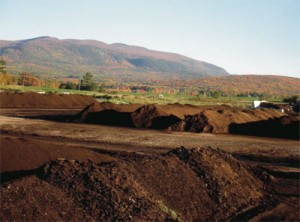Why Compost? & Our Process
Nature’s Multivitamin for Plants
Organic Matter
Frequently overlooked in the past, organic matter is critical in buffering nutrients to reduce potential toxicity from commercial fertilizers. Organic matter also helps to retain moisture and provide an environment for microbes to flourish in the plant’s root zone.
Nutrients
While not as immediately powerful as chemical fertilizers, organic compost slowly releases nutrients for maximum utilization by plants. Typically, this takes place over several years, making repeat applications beneficial and eliminating potential damage to the soil and plant life.
Microbial Activity
Millions of bugs work for you! The basis for organic farming is to provide a living healthy growing media, encouraging numerous beneficial responses from the entire plant. By using our organic compost, you are creating a universe of life, starting with a microbial blend of organisms. Congratulations!
Our Composting Process
The methane is captured and used to produce electricity. The solids and liquids are separated. The resulting products are nearly weed-free, close to odorless, and do not have the harsh nitrogen toxicity associated with fresh manure. The liquid is applied to our farm in Vermont as a natural plant food, with the result being sky-high corn!
Solids are brought to the composting facility, where they are incorporated with carbon sources to produce our high-quality products. Composting uses aerobic bacteria, fungi, and other microbes to break down the complex organic matter into a stable substance known as humus.
Our composting expertise has expanded and we now compost other farms’ cow manure, chicken litter, and horse bedding — truly a recycling phenomenon!




